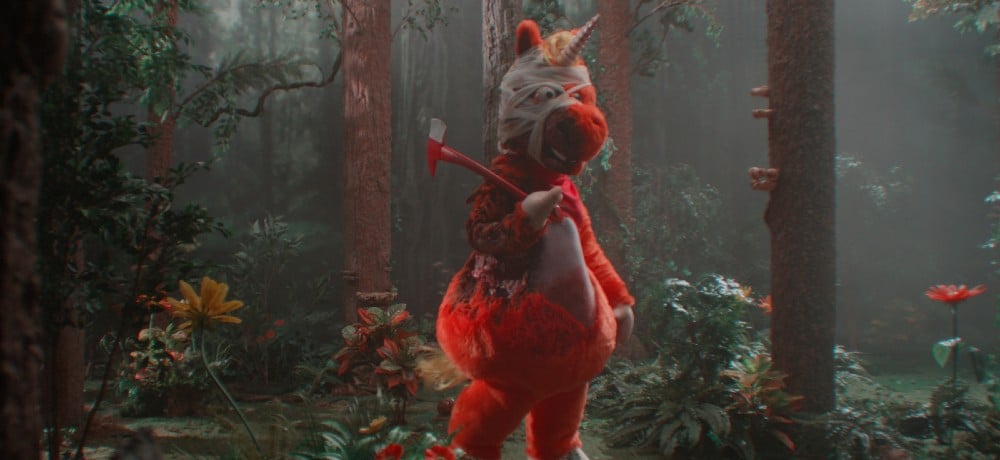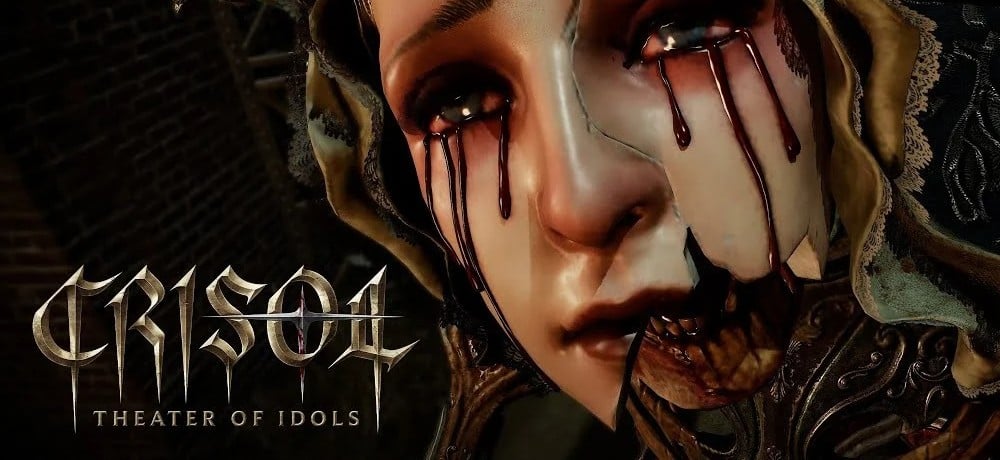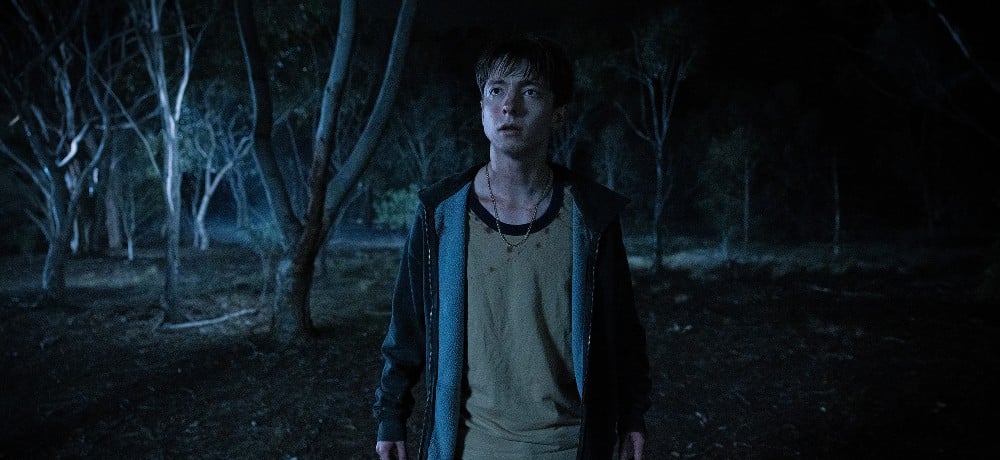





This Friday, Magnet Releasing is unleashing Michael Beach Nichols’ intriguing documentary Wrinkles the Clown in theaters and on demand. The project is centered around the mysterious figure known as “Wrinkles the Clown,” who shows up randomly to terrorize small children and even has a phone number you can call if you want to try and connect with him. In his exploration of the Wrinkles mythology, Nichols also examines the clown hysteria that was happening around the country a few years back and how the internet has changed the landscape of modern urban legends.
While at Fantastic Fest 2019, Daily Dead spoke with Nichols, who discussed what drew him to the project initially, what he uncovered during his filmmaking processing, getting Wrinkles involved in the doc, and more.
What was the initial appeal about going into this story in particular and exploring the phenomenon of Wrinkles? It does seem like right now clowns are everywhere. So, did it feel like the timing was perfect for something like this?
Michael Beach Nichols: Yeah, we had heard about Wrinkles before that whole 2016 clown hysteria took place and we were actually trying to develop the film when all that happened. And so we freaked out because we thought that this was the moment right now in 2016 and we weren't filming or anything yet. Initially, we just felt like we'd completely missed the boat.
But then, it was just rekindled when IT was announced, and then that IT would have a sequel. We realized that we would probably finish the film right around when the IT sequel came out and we were hopeful that there would be a second wave of this clown mania. But for us, it was really just about the voicemails and finding how kids mostly and strangers were reacting to this face and this phone number. The clown thing was certainly a part of it, but it wasn't the whole thing. It really became more about the internet and folklore and with things going viral, how fast information and stories can spread online, especially amongst children. The clown was just tertiary to that. That thread was what we wanted to follow.
It's really interesting to me how the internet has really changed communication, and in its own way, has begun developing its own folklore. Was that something as you dove into this, you realized that this tool that’s meant to unite us also has some sinister implications as well?
Michael Beach Nichols: Yeah, absolutely. I think our first talking head interview was with a professor of folklore up in one of the SUNYs [State University of New York] in New York and Putnam, Trevor Blank. We'd found him because he had done the Slender Man documentary [Beware the Slenderman]. He is this folklore expert and so we reached out to him and asked him if he had heard of Wrinkles, speaking with him and talking about the idea of digital folklore and legend tripping, which is basically when this whole YouTube genre of kids film themselves doing scary things. So with Wrinkles, it's them filming themselves, calling Wrinkles. And it's them trying to test the veracity of the myth, right? Like you heard about this clown, here's his phone number, let's see what happens when we do it and let's document that and let's put it online. Other people will imitate that and it just keeps snowballing from there.
So, that became just absolutely fascinating how quickly these stories spread. We were really interested when we were looking up online to see what other types of internet folklore existed, like Bloody Mary, which has been around forever, and it's really interesting that that is still a thing and there's still tons of those kinds of videos on the internet now. It's just the speed at which things can disseminate that I think is really fascinating and also really scary.
It's like technology combined with how fast things can spread on the internet, and it really paints a really dark picture of where we're headed. So, in some ways, Wrinkles is a relatively harmless example of a digital folklore with obviously some dark undertones with parents just using the number to terrify their children. But also, it’s indicative of what could happen down the road.
And for Wrinkles, it was just like, "What will people believe?" When he made that first video with Wrinkles coming out from underneath the bed, he was like, "No one's going to believe this." He was not optimistic about the chances of anything happening with that. Then, when people believed it, he just got this sort of rush, and he just continued to put stuff out there to see what would happen. All along for him, he was just blown away that people would just believe these things. Not everyone does, but enough did that it took off. So yeah, the internet is something I'm really firmly fascinated by right now, and also terrified by.
When you were thinking of doing this, how early on did you approach Wrinkles? Was he completely gung-ho with this or did he need a little convincing?
Michael Beach Nichols: The way that I first found out about it was someone had sent me the CCTV video and then there was a Kickstarter from a local filmmaker in Fort Myers who was trying to do a documentary about Wrinkles. And I was like, “This is genius,” and I actually donated to the campaign. It wasn't really doing well, and I've done like four successful Kickstarters, so I reached out to the filmmaker also because I'm from that same town. A lot of the Wrinkle scenes took place in Fort Myers. He's in Naples, so I just felt this camaraderie.
I reached out to the filmmaker doing the Kickstarter and I gave him some advice and suggestions. I tried to get it on Reddit and tried to get press for it, so we had a little correspondence, but the Kickstarter was ultimately unsuccessful. Some of my friends that I work with and make films with, we were wondering, "Should we reach out to this filmmaker and see if he's going to do anything with it?" But we felt uncomfortable being like, “Hey, we can make this film better than you,” so we just dropped it. And then about six months went by and our managers actually brought us the project, because an LA company called Crush Pictures had reached out to that filmmaker to initially help him make this project.
That filmmaker was basically cool with helping us and offered to make the introduction to Wrinkles, too, because he still wanted to have this project get made. And so that's how the project came. So for us, it wasn't terribly hard to get access because this filmmaker had already established that and then he gave us his blessing, and we were able to move forward.
---------
Visit our online hub to catch up on all of our live Fantastic Fest 2019 coverage, including more reviews and interviews from the festival!